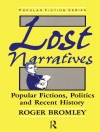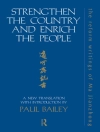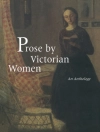A fresh new approach to Victorian medievalism, showing it to be far from the preserve of the elite.
This book offers a challenge to the current study of nineteenth-century British medievalism, re-examining its general perception as an elite and conservative tendency, the imposition of order from above evidenced in the work of Walter Scott, in the Eglinton Tournament, and in endless Victorian depictions of armour-clad knights. Whilst some previous scholars have warned that medievalism should not be reduced to the role of an ideologically conservative discourse which always and everywhere had the role of either obscuring, ignoring, or forgetting the ugly truths of an industrialised modernity by appealing to a green and ordered Merrie England, there has been remarkably little exploration of liberal or radical medievalisms, still less of working-class medievalisms. Essays in this book question a number of orthodoxies. Can it be imagined that in the world of
Ivanhoe, the Eglinton Tournament, Dante Gabriel Rossetti, Alfred Tennyson, the working class remained largely oblivious to, or at best uninterested in, medievalism? What, if any, was the working-class medievalist counter-blast to conservatism? How did feminism and socialismdeploy the medieval past? The contributions here range beyond the usual canonical cultural sources to investigate the ephemera: the occasional poetry, the forgotten novels, the newspapers, short-lived cultural journals, fugitive Chartist publications. A picture is created of a richly varied and subtle understanding of the medieval past on the part of socialists, radicals, feminists and working-class thinkers of all kinds, a set of dreams of the Middle Agesto counter what many saw as the disorder of the times.
DAVID MATTHEWS is Professor of Medieval and Medievalism Studies in the English Department at the University of Manchester; MICHAEL SANDERS is Senior Lecturer in Nineteenth-Century Writing in the English Department at the University of Manchester. Contributors: Stephen Basdeo, Carolyn Collette, Ingrid Hanson, Stephen Knight, David Matthews, Stuart Mc Williams, Rosemary Mitchell, Matthew Roberts, Michael Sanders, Colin Trodd.
Inhoudsopgave
Introduction: Towards a Subaltern Medieval Unconscious – David Matthews and Michael Sanders
Catholicism and Constitutionalism in William Cobbett’s English and Irish Medievalism – Matthew Roberts
Resisting Medievalism: The ‘Mediaeval Mania’ and the Working-Class Press – David Matthews
How Radical was Rienzi? The Nineteenth-Century Representation of the Roman Revolutionary Republican in the British Cultural Imagination – Rosemary A. Mitchell
Chartism and Medievalism: Retrospective Radicalism in the English Nineteenth Century – Stephen Knight
Making Sense of Chartism’s Multiple Medievalisms – Michael Sanders
Rousing ’the Spirit of Wat Tyler’: Chartist Newspaper Portrayals of the Rebel Leader – Stephen Basdeo
The Cause of Liberty: Ford Madox Brown, Augustus Welby Pugin and Victorian Medievalism – Colin Trodd
Serfs, Saints and Comrades: Working-Class Medievalism and the Narratives of Victorian Socialism – Ingrid Hanson
Morbid Solidarity: Remains, Afterlives, and the Commune of Saints – Stuart Mc Williams
Finding the Present in the Past: Suffrage Medievalism in the Pages of
Votes for Women – Carolyn P Collette
Over de auteur
CAROLYN COLLETTE is an American literary critic whose work has focused on late Medieval Anglo-French literary culture. She is Professor Emerita of English literature at Mount Holyoke College.












